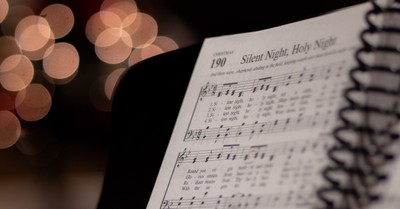Defining Worship, Part 1: What's It All About?
- Bob Kauflin Director of Worship Development, PDI Ministries
- Updated Sep 03, 2003

While the worship of God may refer to the highest privilege given to humans, the actual word "worship" is subject to the same weakness as any other word -- the more we use it, the less it usually means. We all think we know what others mean when they speak of "worship," but the truth is we can't be quite sure.
"Worship" might be the word someone chooses when trying to describe a particular sound or style of music. Depending on the speaker it can be anything from guitar-driven pop songs to boomer-friendly light rock to classic hymns. Many churches call a Sunday morning service, or perhaps a portion of that meeting, "worship."
Another way we use the word "worship" is in describing someone who is unusually expressive when singing praise to God. We might say, "She's a real worshiper." In that instance, "worship" refers to degrees of bodily movement or expressiveness. With the "worship explosion" of the past decade, marketers have realized that including "worship" in the title of a project is an effective marketing tool that often boosts sales. Others recoil at that thought, believing that "worship" really means intimacy with God.
Obviously, we need to take time to sort through these very different views of what worship really is. After all, worship is God's idea. It's what He created us to do. Theologian David Peterson comments, "We have enough how-to-do-it books and not enough reflection on worship as a total biblical idea. Worship is a subject that should dominate our lives seven days a week. (Engaging with God - A Biblical Theology of Worship, p. 21)
In my study of Scripture, I've found at least five distinct concepts that Scripture attaches to worship: exaltation, expression, encounter, event, and everyday.
Each one reflects a unique way in which God intends for us to use and understand the reality behind this word. While not exhaustive, this list gives us a basic foundation for how we should view worship. Not every passage we'll look at in this series includes the word "worship," but that's simply because the Bible employs a variety of ways to refer to it.
Worship is first and foremost exaltation. The Hebrew and Greek words in the Bible that we translate as "worship" most often communicate an attitude of reverence, submission, and homage. In the act of worship, we are by definition acknowledging that someone or something else is above us and worthy of our affection, attention and adoration.
Biblical worship, then, involves exalting God above all other objects. This can be done directly, as in Exodus 15:2, where the Israelites declared, "The LORD is my strength and my song, and he has become my salvation; this is my God, and I will praise him,
my father's God, and I will exalt him" (ESV). We see here, as in many other passages, that worship is about proclaiming the greatness of God's attributes, the splendor of His works, and His absolute claim on our lives.
Other times, our non-verbal actions and responses exalt God and reflect the essence of worship. We're told that Job fell to the ground and worshiped God when he heard that his home, possessions, and family had been destroyed (Job 1:21) By his actions he was exalting God's sovereignty and wisdom above his own understanding. When Mary anointed Jesus' feet with costly perfume in John 12 she modeled worship by exalting her love for the Savior above the world's monetary value system.
At its heart, worship involves the exaltation of all that God is and does. Next time we'll explore worship as expression.
Recommended Resources:
Practical Foundations for Worship: Once we know that congregational worship is about exalting, encountering, and responding to God, many practical issues need to be addressed. How does a pastor effectively care for and lead his musicians? What should the requirements for participation on a music team be? What place does spontaneity play in a Sunday meeting? How can a church nurture and strengthen the relationship between a pastor and the worship leader? These topics and others are addressed in this collection of messages on worship theology from Bob Kauflin, director of worship development for Sovereign Grace Ministries.

.jpg)


















